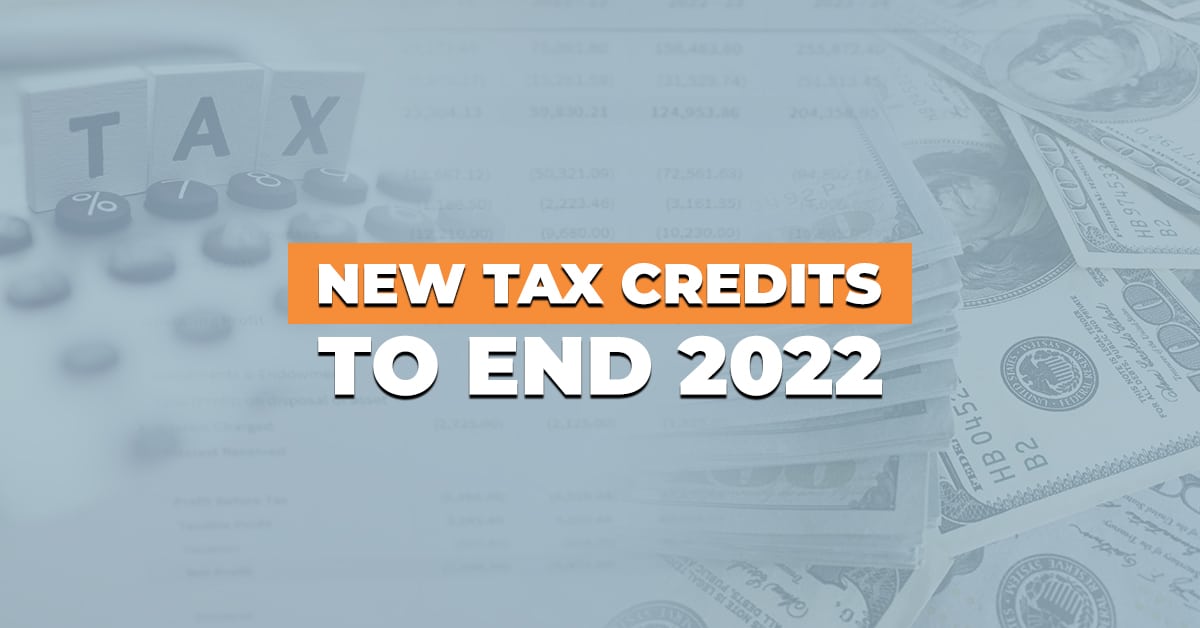Have you heard about the Inflation Reduction Act? Signed into law by President Biden on August 16, 2022, it contains several extremely valuable tax credits for homeowners (along with many other measures that could help you save money).
What’s included in the Inflation Reduction Act? What tax credits should you be aware of? How else could the Inflation Reduction Act impact your family or business’s finances?
Here’s what you need to know. If you have any questions, don’t hesitate to contact us.
What Is the Inflation Reduction Act?
The goals of the Inflation Reduction Act of 2022 are to reduce carbon emissions by approximately 40% by 2030, invest in domestic energy production and manufacturing, fight inflation, extend the expanded Affordable Care Act program through 2025, and let Medicare negotiate for prescription drug prices.
Additionally, the bill will invest approximately $369 billion in Energy Security and Climate Change programs and $300 billion in Deficit Reduction over the next ten years.
New Tax Credits
Unlike tax deductions, which simply reduce your taxable income, a tax credit is a dollar-for-dollar reduction in the taxes you owe. For example, a $1,000 credit would take $1,000 off your tax bill, making tax credits far more valuable than tax deductions. Here are some of the most notable tax credits added or extended with the Inflation Reduction Act.
Energy Efficient Home Improvement Credit
Included in the Inflation Reduction Act is the 2023 Energy Efficient Home Improvement Credit, which helps homeowners pay for a variety of energy efficiency improvements to their home, such as:
- Electric panel upgrades
- Biomass boilers and stoves
- Hot water boilers, furnaces, central air conditioners, water heaters, and heat pumps
- Home insulation
- Exterior doors, skylights, and windows
While there was a $500 lifetime cap on the previous credit, the new law provides a $1,200 annual cap and specific caps on certain improvements. Now, you can perform many energy efficiency projects over the course of several years and get a tax credit each year.
Home Electric Vehicle Charger Credit
The tax credit for installing a home electric charger has been extended through 2032. However, this credit will only be available for homeowners who live in rural or low-income areas starting in 2023. This non-refundable credit is equal to as much as 30% of the cost of a home charger (with a $1,000 cap).
Residential Clean Energy Credit
Extended through 2034, the Residential Clean Energy Credit increased from 26% to 30% for eligible property put in service in 2022 through 2032.
This credit can be applied to residential fuel cells, small residential wind turbines, geothermal heat pumps, solar water heaters, storage batteries, and solar panels, with no annual or lifetime cap. With the average solar project costing more than $20,000, you could easily save more than $6,000 with this tax credit alone.
Other Key Parts of the Inflation Reduction Act
The Inflation Reduction Act covers far more than just a few tax credits. Here are some other highlights of the sweeping legislation.
Reducing the Deficit
The deficit fell more than $350 billion last year and is projected to fall by an additional $1.5 trillion this year thanks in large part to hundreds of billions of dollars in deficit reduction achieved via the Inflation Reduction Act. 126 economists have said they believe reducing the deficit will support strong economic growth and help fight inflation.
Making the Tax Code Fairer
While no family earning less than $400,000 will see their taxes go up a single penny, the Inflation Reduction Act helps make the wealthiest corporations and top earners pay their fair share.
In 2020, 55 of America’s biggest, wealthiest corporations didn’t pay a cent in federal income taxes, and the top 1% of earners are estimated to evade $160 billion in taxes each year.
From collecting taxes already owed by large corporations and wealthy individuals, the Inflation Reduction Act will generate roughly $124 billion in savings, according to the Congressional Budget Office.
Reducing Harmful Pollution
Reducing particle pollution from fossil fuels and deploying clean energy will help prevent up to 100,000 asthma attacks and 3,900 premature deaths each year by 2030.
Building a Clean Energy Economy
The Inflation Reduction Act will build a clean energy economy by:
- Creating millions of good-paying jobs making clean energy in America
- Protect nearly 2 million acres of national forests and strengthen climate resilience
- Advance cost-saving clean energy projects at rural electric cooperatives
- Power communities, businesses, and homes with more clean energy by 2030, including 2,300 grid-scale battery plants, 120,000 wind turbines, and 950 million solar panels
Lowering Energy Costs
Americans will have a variety of ways to benefit from reduced energy costs, including:
- Meeting President Biden’s climate goals will save each family an average of $500 per year on energy costs
- Up to $7,500 in tax credits for new electric vehicles and $4,000 for used electric vehicles can help families save $950 per year
- 5 million more families will be able to install solar panels on their roofs, saving at least $300 per year
- $14,000 in direct consumer rebates for families to buy heat pumps or other energy-efficient home appliances will save families at least $350 per year
Cutting Prescription Drug Costs
Since Medicare will be allowed to negotiate prescription drug costs, up to 7 million Medicare beneficiaries could see their prescription drug costs go down, and 3.3 million diabetic Medicare beneficiaries will have their insulin costs capped at $35 for a month’s supply. Additionally, millions of Americans with Medicare Part D will have their pharmacy costs capped at $2,000 per year.
Lowering Health Care Costs
13 million Americans will continue to save an average of $800 per year on health insurance premiums, meaning roughly 3 million more Americans will have health insurance than they would without the law. The uninsured rate is currently at an all-time low of 8%.
Need a Houston, TX CPA Firm? Let Us Help You
If you’re looking for an accountant in the Houston area, turn to Jones CPA Group. We care about your financial goals and offer accounting and tax services to help you reach those goals. Call us at 832-698-7011 or request a free business consultation today to find out how we can help your business thrive by putting our expertise to work for you.







